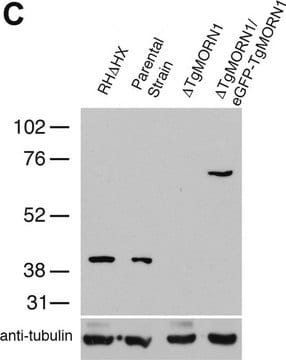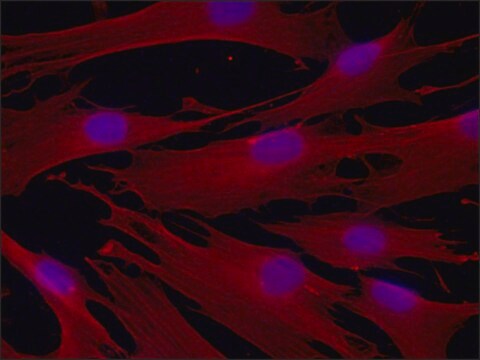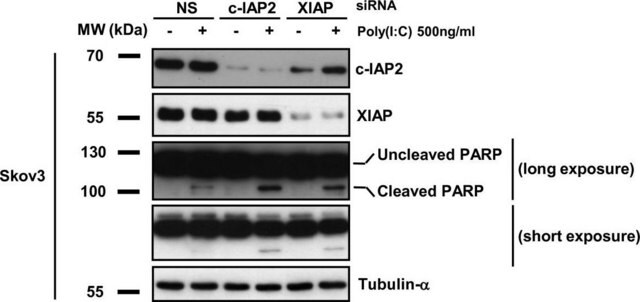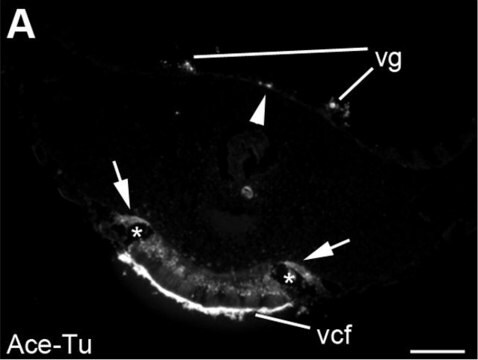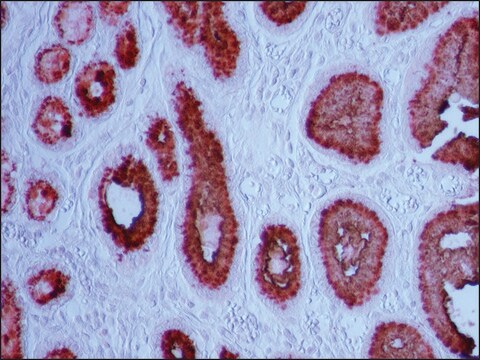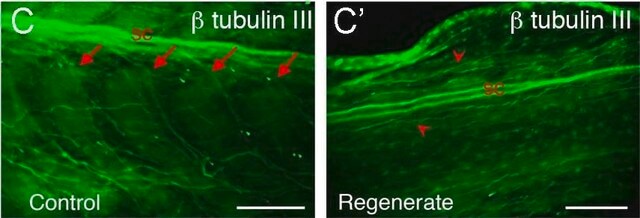T7941
Monoclonal Anti-β-Tubulin IV antibody produced in mouse
clone ONS.1A6, ascites fluid
Synonym(s):
Anti-DYT4, Anti-TUBB4, Anti-beta-5
About This Item
Recommended Products
biological source
mouse
Quality Level
conjugate
unconjugated
antibody form
ascites fluid
antibody product type
primary antibodies
clone
ONS.1A6, monoclonal
mol wt
antigen ~55 kDa
species reactivity
hamster, chicken, human, bovine, rat, mouse
technique(s)
immunohistochemistry (formalin-fixed, paraffin-embedded sections): suitable
indirect ELISA: suitable
microarray: suitable
western blot: 1:400 using cultured human breast adenocarcinoma cell line MCF-7
isotype
IgG1
shipped in
dry ice
storage temp.
−20°C
target post-translational modification
unmodified
Gene Information
human ... TUBB4(10382)
mouse ... Tubb4(22153)
rat ... Tubb4(29213)
General description
Immunogen
Application
Immunocytochemistry (1 paper)
Immunofluorescence (1 paper)
Western Blotting (1 paper)
Biochem/physiol Actions
Disclaimer
Not finding the right product?
Try our Product Selector Tool.
Storage Class Code
10 - Combustible liquids
WGK
WGK 2
Flash Point(F)
Not applicable
Flash Point(C)
Not applicable
Choose from one of the most recent versions:
Already Own This Product?
Find documentation for the products that you have recently purchased in the Document Library.
Customers Also Viewed
Articles
Microtubules of the eukaryotic cytoskeleton are composed of a heterodimer of α- and β-tubulin. In addition to α-and β-tubulin, several other tubulins have been identified, bringing the number of distinct tubulin classes to seven.
Our team of scientists has experience in all areas of research including Life Science, Material Science, Chemical Synthesis, Chromatography, Analytical and many others.
Contact Technical Service



